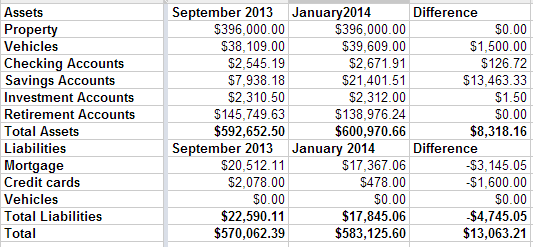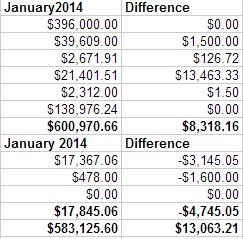- RT @mymoneyshrugged: The government breaks your leg, and hands you a crutch saying "see without me, you couldn't walk." #
- @bargainr What weeks do you need a FoF host for? in reply to bargainr #
- Awesome tagline: The coolest you'll look pooping your pants. Yay, @Huggies! #
- A textbook is not the real world. Not all business management professors understand marketing. #
- RT @thegoodhuman: Walden on work "spending best part of one's life earning money in order to enjoy (cont) http://tl.gd/2gugo6 #
The Evils of a Reverse Mortgage
Picture it: Sicily, 1922.
Sorry, wrong channel. Let’s try again.
Picture it: 20, 30, 50 years from now. You’re old. The money you’ve been failing to save so you could stock up on Fritos and obsolete video game consoles(to survive the zombie apocalypse in style) would come in handy about now, since the end of the world never happened. Note to self: Never trust an ancient Mayan.
You’re 70, with no savings and no income aside from the Social Security check that hasn’t been adjusted for inflation since the Palin(Bristol) administration.
But you own your house and that nice young man down at Yersk Rude Bank recommended a reverse mortgage. That could give you all of the money you need to live a comfortable retirement and pay for a bit of a funeral.
Right?
Nazzofast.
Of all of the possible social security strategies, this is one of the worst.
What is a reverse mortgage?
In a traditional mortgage, you’re given a chunk of money guaranteed by your home. You have to pay that money back over time, or you’ll lose your house. In a reverse mortgage, you’re still converting your home’s equity into cash, but you don’t have to pay it back until you die or move, including moving into a nursing home. You are effectively abandoning future-house in exchange for now-money.
Who qualifies for a reverse mortgage?
If you are 62 or older, and live in a home you own, you qualify. Credit and income are not considered.
Why would you want a reverse mortgage?
If money is tight and you have no prospects, a reverse mortgage may be a valid consideration. A better consideration would be to take out a traditional loan and make monthly payments out of that lump sum, or sell your house outright and move someplace more affordable.
What are the downsides of a reverse mortgage?
You lose your house. Technically, your heirs lose your house. A reverse mortgage becomes due when you die. If your heirs can’t cover the loan, the house will be foreclosed. Also, this is a loan. It accumulates interest, even if you aren’t paying it back. If you borrow $200,000 and die in 10 years, your estate may owe $400,000 on the reverse mortgage. If this is a treasured family home, losing it could come as a shocking blow at a time when your family would already be reeling from the loss of, well, you.
What if you really don’t like your heirs?
I’d still recommend getting a traditional mortgage. You can throw a killer party and then, you’ll rebuild equity over time. That way, if you live longer than you expect, you can refinance and throw another killer party. If you go this route, don’t invite the kids, but be sure to hire a videographer so they can see how you’re spending their inheritance.
I’m not a banker or a financial advisor, but I’d recommend against a reverse mortgage in almost all circumstances.
How about you? Would you get one, or recommend one? What’s your preferred method to hurt your ungrateful heirs?
Time vs Money
In this corner, weighing in at the only thing you have in this life that you can’t possibly get more of: Time!
And in this corner, weighing in at the thing people think they need to be happy: Money!
Keep it clean. No biting, scratching or hitting your opponents with a chair unless my back is turned. Fight!
Yesterday was Jimmy John’s customer appreciation day. They had subs for $1, but you had to go there in person to get it. At noon, there were more than 50 people standing in line. If it takes 1 minute to make a sandwich, that’s almost an hour in line. To save $5.
Good for Jimmy John’s. They brought thousands of extra people into the restaurant and had a huge line running down the sidewalk. That makes them look great to everyone driving by.
But, the people? Really? Would you work, at any job, for anyone(excluding charitable work) for $5 per hour?
Round 1: Time!
My mother-in-law regularly drive 6 miles out of her way to save 5 cent per gallon on gas. If usually takes 10-15 minutes to get there, if the stoplights behave and traffic is decent. If she arrive with her gas gauge on “E”, she gets to put 15 gallons of gas in her car, for a savings of 75 cents. That’s an effective rate of $2.25 per hour, not counting the gas used to drive there. However, if I ask her to give her $2 to stand in her driveway doing nothing for an hour, she looks at me like I’m nuts!
Round 2: Time!
My wife will occasionally make a shopping list that includes coupons and items spanning three grocery stores. If that were to happen, there would be an extra hour wasted, just traveling between the stores, minimum. Then another hour wasted walking past the items in the first store that were slated to be purchased at the second, or third store. Add another 15 minutes per store to check out, and we’re looking at 2 and a half hours down the tubes to save a possible $20?
No freaking way.
Round 3: Time!
My time is valuable. No matter what I do, or how hard I work, I can never get more than my allotment. Why would I waste it to save a fraction of what I can earn by using it in other ways?
And the winner is….Time!
What’s the craziest thing you’ve done to save a few bucks?
Why I Hate Payday Loans
I hate payday loans and payday lenders.
The way a way a payday loan works is that you go into a payday lender and you sign a check for the amount you want to borrow, plus their fee. They give you money that you don’t have to pay back until payday. It’s generally a two-week loan.
Now, this two week loan comes with a fee, so if you want to borrow $100, they’ll charge you a $25 fee, plus a percent of the total loan, so for that $100 loan, you’ll have to pay back $128.28.
That’s only 28% of actual interest; that’s not terrible. However, if you prorate that to figure the APR, which is what everyone means when they say “I’ve got a 7% interest rate”, it comes out to 737%. That’s nuts.
They are a very bad financial plan.
Those loans may save you from an overdraft fee, but they’ll cost almost as much as an overdraft fee, and the way they are rigged–with high fees, due on payday–you’re more likely to need another one soon. They are structured to keep you from ever getting out from under the payday loan cycle.
For those reasons, I consider payday loan companies to be slimy. Look at any of their sites. Almost none are upfront about the total cost of the loan.
So I don’t take their ads. When an advertiser contacts me, my rate sheet says very clealy that I will not take payday loan ads. The reason for that is–in my mind–when I accept an advertiser, I am–in some form–endorsing that company, or at least, I am agreeing that they are a legitimate business and I am helping them conduct that business.
In all of the time I’ve been taking ads, I’ve made exactly one exception to that rule. On the front page of that advertiser’s website, they had the prorated APR in bright, bold red letters. It was still a really bad deal, but with that level of disclosure, I felt comfortable that nobody would click through and sign up without knowing what they were getting into. That was a payday lender with integrity, as oxymoronic as that sounds.
Time vs Money Redux
Saving money is a good thing
Saving time is a good thing.
Somewhere in between, there has to be a balance. It’s possible to spend far too much time to save very little money.
For example, on September 30th, I left for the Financial Blogger’s Conference. Thinking I’d be frugal and save a little money, I told my GPS to avoid the toll roads. According to Google maps, the cheap route should have added 20 minutes to my trip. Coming into Illinois from Wisconsin on the toll roads, it’s easy to spend that much time waiting to pay the toll, since I don’t own an Illinois magic toll-paying box.
Unfortunately, the little smart-a** suction-cupped to my windshield sent mebthrough every construction zone between Wisconsin and Schaumberg, Illinois.
That sucks.
I went through a series of little towns with speed limits that randomly changed from block to block. Road construction had half of the roads down to just one lane. All told, I saved $3.40, judging by the tolls heading home, but the horrible detour cost me well over an hour and a half of time.
I saved $3.40, but lost 90 minutes. That’s not a good return on investment.
Just a month ago, I was ripping into my mother-in-law for wasting half an hour to save 75 cents. Then I have to go and demonstrate how horrible I am at making that save time vs money judgement.
I need to work on that.
What’s the most time you’ve spent to save a small amount of money?
Net Worth Update – January 2014
This may be the most boring type of post I write, but it’s important to me to track my net worth so I can see my progress. We are sliding smoothly from debt payoff mode to wealth building mode.
Our highlights right now are nothing to speak of. We did let our credit card grow a little bit over the last couple of months, but paid it off completely at the end of December. It grew mostly as a matter of not paying attention while we were doing our holiday shopping and dealing with some car repairs.
That’s it. We haven’t remodeled our bathrooms yet, but we have the money sitting in a savings account, waiting for the contractor. We haven’t bought a pony yet, but we did decide that a hobby farm wouldn’t be the right move for us. We’ll be boarding the pony instead of moving, at least for the foreseeable future.
Our net worth is up $13,000 since September. Our savings are up and our retirement accounts are down because there are two inherited IRAs that we need to slowly cash out and convert to regular IRAs.









